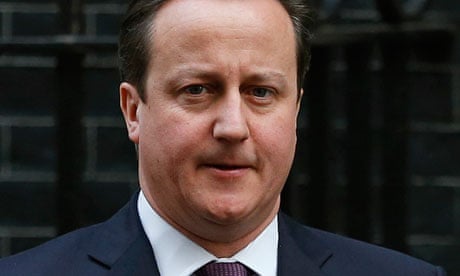The squeeze on tax credits and benefits will push 200,000 more children into poverty, the government has admitted for the first time. This suggests that in total a million extra children will be in poverty as a result of government welfare measures.
The extra 200,000 children in poverty is a result of the government's decision to lift most in-work and out-of-work benefits by only 1% a year over the next three years, instead of increasing them in line with inflation.
Ministers had been reluctant to state what the impact would be on child poverty, an official government measure of relative poverty that looks at the number of households with incomes at 60% or less than the national average household income.
But in an answer to a parliamentary question, the work and pensions minister, Esther McVey, estimated that "the uprating measures in 2013-14, 2014-15 and 2015-16 will result in around an extra 200,000 children being deemed by this measure to be in relative income poverty compared to uprating benefits by CPI [consumer price index]".
Ministers are trying to push through the benefits squeeze with just one day of debate for the committee stage and third reading of the welfare benefits uprating bill in the Commons on Monday.
Labour said the figures showed children were victims of Tory "political games". Ed Balls, the shadow chancellor, said: "The true character of this Conservative-led government has now been exposed. While they give the richest 2% of earners a £3bn tax cut, 200,000 children will be pushed into poverty and millions of working families made worse off.
"Ministers have spent weeks refusing to admit what the impact of their policies would be on child poverty and now we know why. Children are paying the price for David Cameron and George Osborne's economic failure and the political games they have decided to play."
Liam Byrne, the shadow work and pensions secretary, said: "The chancellor's pathetic little games have real consequences for millions of families struggling to make ends meet.
"Ten years of Tory party detoxification has been destroyed because the chancellor needed a new-year dividing line and Britain's poorest children are paying the price. The nasty party is well and truly back."
The Child Poverty Action Group (CPAG) also criticised the changes but a Department of Work and Pensions spokesperson said: "Even with plans to limit increases to benefits, people will still see their benefits go up year on year – there is no freeze in support. And universal credit will make 3m households better off."
Ministers have argued that it is misleading to look at the impact of the benefits uprating move in isolation. They have separately said they no longer regard the relative child poverty statistics, introduced by Labour, as a useful or valid measure. "Looking at relative income in isolation is not a helpful measure to track progress towards our target of eradicating child poverty," the parliamentary answer said.
Ministers have for some time been arguing that the relative income measure is unhelpful as it focuses on too narrow a definition of poverty. The government has introduced a range of additional measures.
Labour points out that David Cameron, when in opposition, repeatedly argued that relative poverty was important and that the Conservative party would measure and act on it.
The government has previously admitted that some families with children might be £728 a year better off out of work as a result of losing their working tax credits following new rules which came into force in April 2012.
Cameron, in his Scarman lecture in 2006, said: "I believe that poverty is an economic waste and a moral disgrace. In the past, we used to think of poverty only in absolute terms – meaning straightforward material deprivation. That's not enough. We need to think of poverty in relative terms, the fact that some people lack those things which others in society take for granted. So I want this message to go out loud and clear: the Conservative party recognises, will measure and will act on relative poverty."
CPAG said that the 200,000 increase set out in the written answer should be added to the 800,000 increase in children in relative income poverty by 2020 that the Institute of Fiscal Studies (IFS) found in its analysis of the coalition's welfare cuts.
The group said: "This now makes it a total of a million children that the coalition's policies are expected to push into relative income poverty by 2020."
The IFS analysis included the impact of a fall in poverty due to the introduction of universal credit.
CPAG claimed the government had revised down the number of children that would be taken out of poverty due to the universal credit from 350,000 to 150,000.

Comments (…)
Sign in or create your Guardian account to join the discussion